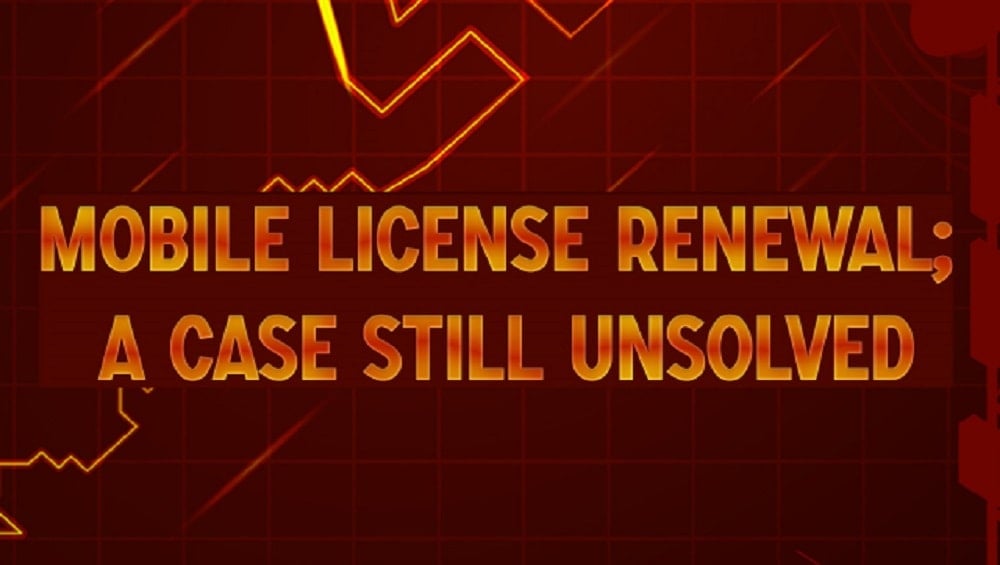Mobile License Renewal: A Case Still Unsolved

Despite being the most successful sector of the country, the industry goes through fiascos, one after another; this time it’s the mobile license renewal tragedy. According to the Telecom Policy of 2015, The Government should have issued the license renewal policy at least two years prior to the expiry of licenses. Being so close to the renewal, the telecom operators have approached the Islamabad High Court challenging the government benchmark price and the timing of the Government to do so. The court has directed Telenor and Jazz to deposit 50 per cent of the license renewal fee. Both Telenor and Jazz made the payment of $224.6 million. However, the companies shall continue to pursue their legal cases, in order to have a final resolution of the mobile license.
According to the Telecom Policy of 2015, The Government should have issued the mobile license renewal policy at least two years prior to the expiry of licenses
One can’t put the blame of this delay on the regulator primarily because they were waiting for the policy from the Government and last year was mainly consumed by the political transition. When the new government took over, it had to face many challenges at the national and international front in fact; it is still coping with a number of problems. The previous government didn’t give the matter its due attention and the new government also didn’t prioritize the issue. The delay and the eventual renewal price decided by the Government have ended up the industry in a situation where the deadline of license has passed, and the High Court has been approached by the operators to intervene in the matter.
Despite the long delay, the government and the telecom operators still can’t find the mutual grounds to agree upon. The holdup is mainly on the price tag now. There were a lot of debates on the pricing with different stakeholders having different opinions. PTA consulted the MoITT and other relevant bodies and has set the per megahertz (MHz) price at $ 39.5 million for the frequency spectrum in 900 MHz and $ 29.5 million in 1800 MHz. In total, Telenor and Jazz have been asked to pay $450 million each for renewal of their license which will also be for 15-year time frame like the old ones. Whereas, the Operators i.e Telenor and Jazz say that the price of license renewal should be $291 million as it was for Ufone in 2014 to provide a level playing field for all players.
Now, both sides have some very solid grounds to support their argument. According to PTA, the cost of the spectrum should be USD 450 Mln because;
- The population of Pakistan has increased by 50 million in the last 15 years
- Coverage has become 100% while the only 1/20th of the country area was covered 15 years ago
- The telecom subscribers have reached 160+ million customers as compared to the mere 5 million back then
- In countries experiencing financial challenges spectrum assignments are used to increase revenues and to ease short-term fiscal pressure
- Due to difficult financial conditions of the country, Rupee has devalued dramatically recently which has increased the dollar rate
Pakistan is undoubtedly one of the fastest-growing telecom markets in the world. After the phenomenal success of 3G and 4G technology, the country is quickly moving towards 5G. IoT, startups, online services, and smart technology have also grown impressively over the years.
All of this added up to increased mobile penetration and uptake of modern technology. Telecom operators have not only benefitted from the conventional communication services but have also ventured into other related products and services such as financial services, device market, and other online services. So basically, the operators have expanded their portfolio and ventured in various other markets as well hence, increasing their profit-making opportunities.
Pakistan is home to 208 million people out of which only 161 million are mobile users while only 68 million are using 3G/4G services. This means that the market of mobile services will grow further in the future and so will the telecom revenues. Therefore, the high renewal fee that telecom operators are asked to pay is justified compared to the profits they will earn from the Pakistani market in the future. Now, if we look at the situation from telecom operators’ viewpoint we find that:
- Voice revenue is declining at a fast pace, but the data revenue has not equally increased to offset the losses
- The operators invested heavily, first in spectrum purchase and then in network expansion and infrastructure building
- A significant amount will have to be invested again in three or four years in 5G
- Increased inflation and continuous devaluation of money have raised the cost of doing business in the country
- If the business is done in local currency than why the spectrum fee is charged in dollars?
- According to the Telecom Policy of 2015, 1st renewal of license should be at the same price as it was issued.
There is no doubt that Pakistan telecom industry is the fastest growing industry of the country but there is also no denying the fact that the socio-economic conditions of the country are not supportive of businesses at all. The operators not only invested a huge amount of money in spectrum auctions and infrastructure lying down but they have also heavily spent in biometric verification process a few years back.
Due to the energy crisis that spreads over more than a decade, the operators had to make their own energy backups. Whereas, Inflation and devaluation of money has decreased the buying power of the consumers as well.
All of this along with fierce market competition has put a damp on companies’ profits. Therefore, the license renewal fee of USD 450 million is definitely going to put the burden on mobile operators, at least in the short run. While the government and industry still need to reach some final agreement, this demand from all stakeholders to work on developing a new renewal policy regime, it needs to keep in mind that license renewal approaches not only influence market entry but also effect the post-entry competitiveness of market players.
It also holds great importance for investors, lenders, consumers, and the development of the sector as a whole. Therefore, it requires cataloging the best regulatory policies to ensure the finest outcome for all stakeholders. Although the Government and Telecom operators both have some solid points in their arguments but using license fee to make money and overcome budget deficit is not the right thing and neither is sidelining the international rules of business according to which every corporation revises the rate it pays to the supplier based on Forex rates, which in current case have changed dramatically from 2014 to 2019.
Inflation and devaluation of money has decreased the buying power of the cons
Pakistan can learn a lot from international case studies where countries have used other mechanisms besides upfront fees for the renewal of mobile licenses. Following are some recent examples:
- Saudi Arabia. The mobile operators were given the opportunity to extend their operating mobile licenses by 15 years and to receive a unified license with no upfront fee. The license renewal payment instead consisted of annual fees formed of 5% of the recurring net income plus 1% of operating revenue
- Qatar. The mobile operating license of Vodafone Qatar was extended from 20 years (ending in 2028) to 60 years (ending in 2068), reportedly without financial compensation
According to International rules of business, every corporation revises the rate it pays to the supplier based on Forex rates, which in current case have changed dramatically from 2014 to 2019
These approaches were mainly price-focused but in Europe, another interesting trend has been seen lately to balance short-term revenue gains for the government with longer-term societal benefits.
Examples of these deals include the following.
- In France, the ARCEP signed a ‘New Deal’ with mobile operators that traded a license renewal fee for the acceleration of the 4G roll-out.
French mobile operators expect to have their licenses extended by 10 years for no upfront cost provided that they agree to make significant coverage commitments, such as:
- o improving the overall quality of service, particularly in rural areas
- o rolling out 5000 new cell sites per operator (including shared sites) in specific areas
- o Increasing the coverage on main roads and railways.
- In Denmark, although auction mechanisms have been used to reassign expiring licenses for the spectrum originally used for 2G (1800MHz in 2016 and 900MHz later in 2018), the Danish regulator has been clear throughout the process that the goal was to maximize coverage to the greatest extent possible rather than to raise revenue. The regulator was successful in achieving its target as great improvements were witnessed in coverage and quality of service after the 1800MHz in 2016.
The government should give operators ambitious targets to make Pakistan a digital nation instead of using them as a money-making machine
Now similar results are expected from the 900MHz band.
Pakistan is at the cusp of the digital transformation, government and private sector are putting equal efforts to bridge the digital divide and build a digital economy. Issues like these will only cause a delay in realizing the digital dream.
The government should give operators ambitious targets to make Pakistan a digital nation instead of using them as a money-making machine.
Expecting to get the license renewal on 2004’s Forex rates is not “Fair” by any means. What will they do in the year 2034, the time of next license renewal? When $290m will have no value, will they still insist on the government to renew their license at the same rate?
Operators also need to understand that the amount that Ufone paid back in 2004 was according to the Forex rate of that time. Expecting to get the license renewal on 2004’s Forex rates is not “Fair” by any means. What will they do in the year 2034, the time of next license renewal? When $290m will have no value, will they still insist the government to renew their license at the same rate?
PTA Taxes Portal
Find PTA Taxes on All Phones on a Single Page using the PhoneWorld PTA Taxes Portal
Explore NowFollow us on Google News!






Correction: Ufone renewed its license in 2016 not in 2004. Now edit last paragraph completely.
Correction: Ufone renewed its GSM license in 2016 not in 2004. It was Warid and Telenor who got license in 2004 which expired in May 2019. So if Ufone can renew its license in 2016 with same price it got license in 2001. why can’t these two operators??